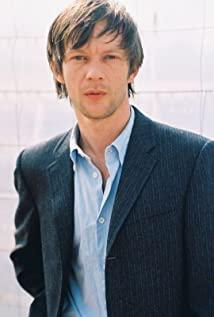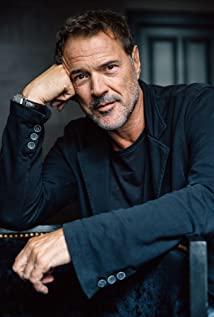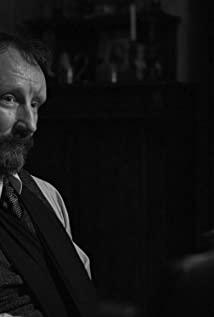Quote: “One thing that scares me always wherever I find it for my whole life is when suddenly, there is a kind of group think (Donnersmarck, 2019).”
The first film I choose is “Des Leben der Anderen (Donnersmarck, 2006)” , also known as “The Lives of Others”, directed by German director Florian Henckel von Donnersmarck. I would like to talk about the “Group Think” director Donnersmarck had mentioned in the interview “Never Look Away Q&A with Director Florian Henckel von Donnersmarck”. Before the director talked about the “Group Think”, he made comparison with US and East Germany, which contained the difference between “individualism” and “collectivism” . The director highly agree with US government's care about the individualism, thus, the “Group Think” that scared the director might be a implication about “collectivism”. Moreover, East Germany used to be a country with extreme “collectivism” led, which ,could be one of the key factors that caused the collapse of East Germany government and also, Berlin Wall (Madarasz, 2003). In addition, “collectivism” is frequently regarded as the opposites of freedom and the symbol of individual violation by a considerable amount of the mainstream of developed, capitalism-guided American and European countries. It is partially appropriate, however when the collectivism becomes extremely peremptory and fierce, the viewpoint could be absolutely correct and that is what we see in the film “Des Leben der Anderen ( Donnersmarck, 2006)”. In collectivism country, people's behaviour is promoted by norms, duties, obligations as they are serving as a part of the whole nation (Triandis, 1995). In the film,Wiesler as a ruthless secret police who is trained for eavesdropping and interrogating holds his belief on C and S at first. He is expected to be “naturally” selfless and do whatever it takes to maintain the security of his country, which is extremely impacted by collectivism. In other words, East Germany wants people like Wiesler as an individual to abandon their independent and critical thinking so that the government can use them as tools to earn benefits. The scene which impressed me the most is when Wiesler begins to doubt for the meaning of life comparing his emptiness with Dreyman and Sieland's love, he sneaks into Dreyman's house trying to get an answer. He reads Brecht's poem “Erinnerung an die Marie A” from the book he stole from Dreyman. Other than having sex with whore or seeing the corruption of his superior,I think reading poem is a unique turning point for Wiesler, when he begins to doubt his faith on collectivism and meanwhile, starts to think independently, which lays a solid foundation for his change of behavior later in the film. In other words, Wiesler learns to be a “individual” from two artists, Dreyman and Sieland. “Group think” sometimes could be negative, that we can easily lose ourselves in the vortex of “collectivism”, losing our own voice from the sound of mainstream. However, to be critical, “Group Think” can also be positive when some thing is beyond the power of individual, which needs us to work together towards the same direction. In the meantime, keep thinking as a individual so that the “Group Think” will not be yawed.starts to think independently, which lays a solid foundation for his change of behavior later in the film. In other words, Wiesler learns to be a “individual” from two artists, Dreyman and Sieland. “Group think” sometimes could be negative, that we can easily lose ourselves in the vortex of “collectivism”, losing our own voice from the sound of mainstream. However, to be critical, “Group Think” can also be positive when some thing is beyond the power of individual, which needs us to work together towards the same direction. In the meantime, keep thinking as a individual so that the “Group Think” will not be yawed.starts to think independently, which lays a solid foundation for his change of behavior later in the film. In other words, Wiesler learns to be a “individual” from two artists, Dreyman and Sieland. “Group think” sometimes could be negative, that we can easily lose ourselves in the vortex of “collectivism”, losing our own voice from the sound of mainstream. However, to be critical, “Group Think” can also be positive when some thing is beyond the power of individual, which needs us to work together towards the same direction. In the meantime, keep thinking as a individual so that the “Group Think” will not be yawed.that we can easily lose ourselves in the vortex of “collectivism”, losing our own voice from the sound of mainstream. However, to be critical, “Group Think” can also be positive when some thing is beyond the power of individual, which needs us to work together towards the same direction. In the meantime, keep thinking as a individual so that the “Group Think” will not be yawed.that we can easily lose ourselves in the vortex of “collectivism”, losing our own voice from the sound of mainstream. However, to be critical, “Group Think” can also be positive when some thing is beyond the power of individual, which needs us to work together towards the same direction. In the meantime, keep thinking as a individual so that the “Group Think” will not be yawed.
The second film I choose is “Werk ohne Author (Donnersmarck, 2018)” , also known as “Never Look Away”, directed by German director Florian Henckel von Donnersmarck.
The film also discusses about the history of East Germany and “Collectivism”. Compared with “Des Leben der Anderen (Donnersmarck, 2006)”, this film is more undemonstrative and less “commercial”. The film narrative is calm and smooth, It discusses the effects “Individualism” and “Collectivism” may cause from the perspective of the protagonist Kurt Barnert, whose experience might be inspired by German artist Gerhard Richter. Similarly, both of the two films focus on depicting the turning of the protagonist from “Collectivism” to self discover. Questions of what people do, why they do it, and whether what they do is right will eventually become individual's search for identity and truth (Greenfield, 1980). The protagonist of “Werk ohne Author (Donnersmarck, 2018)” Kurt Barnert and the protagonist of “Des Leben der Anderen (Donnersmarck,2006)” Wiesler are both asking those questions at some point in the two films. Barnert is a man who grew up in N Germany, learning in East Germany and finally escape to the West Germany. When he is a little boy, cousin and him watch an exhibition of modern art paintings, which is considered as degenerated art by Ns. However, both Barnert and his cousin like it. Barnert is too young to understand why Ns think that way, and his love for those paintings is the natural of an individual, himself. The element of individual expression is restrained late on after Ns' persecution to his cousin, and several deaths of people he is familiar with. The professor in East Germany told him that art which is created by self expression is decayed, and which serves for the country is noble. At this period,Barnert is same as Wiesler in “Des Leben der Anderen (Donnersmarck, 2006)” who is shaped by his country. When he escaped to West Germany and is gradually aware of himself, which is about what he wants to express through the art. The moment when Barnert is standing in the hoot sound of buses just like his cousin did, is similar to the time when Wiesler told to book cashier that “The book is a gift for me.” They both get out of the “Group Think”, the “Collectivism” and find themselves and the meaning of life. In addition, Two professors have different viewpoints to art, Prof. Horst thinks that art should serve people instead of self-expression, and Prof.Verton thinks oppositely. Art with self- expression might take personal or global, regional and history into consideration (Hannele, 2011).What the director tries to express might be that if there is no self-expression, then the existence of collectivity and freedom will have no meaning.
Reference
Donnersmarck, F. (2019, February 6th). Interviewed by J. Neumaier [Digital Recording]. City Cinemas. Never Look Away Q&A with Director Florian Henckel von Donnersmarck. Paris Theater in NYA.
Donnersmarck, F (Director). (2006). Des Leben der Anderen (The Lives of Others) [Motion Picture]. Germany: Buena Vista International & GmbH.
Donnersmarck, F (Director). (2018). Werk ohne Author (Never Look Away) [Motion Picture]. Germany: Buena Vista International & GmbH.
Greenfield, T. (1980). The Man Who Comes Back through the Door in the Wall: Discovering Truth, Discovering Self, Discovering Organizations. Reference Service Review. 27 (2).
Hannele, S. (2011). Beyond Craft and Art: A Pedagogical Model for Craft as Self-expression. Reference Service Review. 12 (5), 111-125.
Madarasz, J. (2003). Conflict and Compromise in East Germany, 1971-1989: A Precious Stability. Reference Service Review. 33 (2), 3-40.
Triandis, H. (1995). Individualism & Collectivism. Reference Service Review. 15 (2).
View more about Never Look Away reviews











